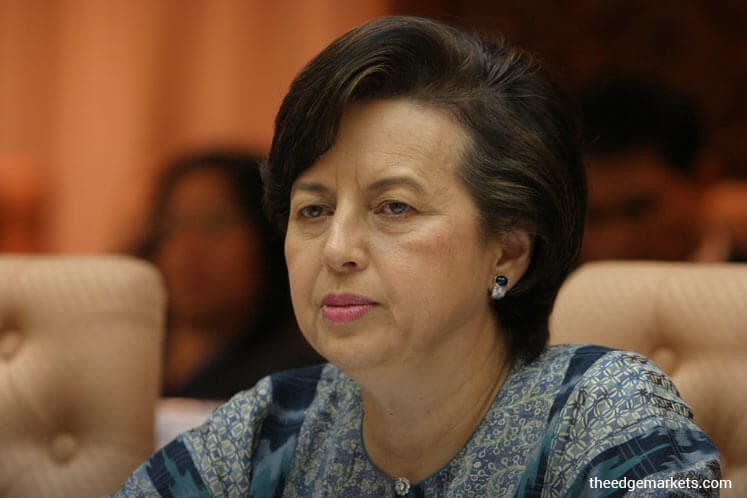
PUTRAJAYA (Sept 6): Former Bank Negara Malaysia governor Tan Sri Zeti Akhtar Abdul Aziz testified today that suffered foreign exchange (forex) transaction losses between 1988 and 1994 amounted to RM32.07 billion.
She told the Royal Commission of Inquiry into the forex scandal that the losses took into consideration, the RM2.47 billion profits in 1990.
Zeti, who served as governor from 2000 to 2016, was made aware of the losses after receiving the Accounting Treatment of Losses Arising from Active Reserve Management 1988-1994 report on April 18, 2007.
"Since 1994, all realised profits or losses were reflected in the profit and loss account of Bank Negara. This has been the proper and accurate accounting practice since 1994," Zeti said.
She said her first direct involvement in reserve management was when she was assigned to the central bank's London representative office, where US$200 million was allocated for the purpose of investment by that office.
The allocation has since been increased to US$500 million for investment by Bank Negara's London and New York offices.
The allocation, which is 1% of the total reserves at any given time, is used to purchase, among others, local currency-denominated bonds in Europe and U.S., which require forex transactions to take place.
She noted that the international reserves amounted to US$20 billion in 1994 and has grown to about US$100 billion now.
Zeti said on May or June 1992, assistant governor Datuk Abdul Murad Khalid informed his boss Tan Sri Jaafar Hussien, who was staying at his apartment in London, regarding the massive exposure to the bank, as a result of the forex transactions.
Abdul Murad did not have details of the forex transactions then, she added.
"Jaafar responded saying that this was probably gross positions that were known by counter-parties that Bank Negara traded with. The counter-parties would not be aware of the net positions of the bank and he was of the view that the net positions was very much less," Zeti added.
Zeti said she learnt about Bank Negara's forex transaction losses from 1988 to 1994 on January 1994, from news of a serious concern relating to the reserves management of the bank.
"I contacted a senior official of the bank to find out what happened and was told that Bank Negara had suffered significant losses from reserve management activities," she added.
Zeti said the original Central Bank of Malaysia Act 1958 allowed Bank Negara to sell and buy currencies.
It is learnt that the older law allowed forex transactions in order to protect the bank's reserves.
However, the new legislation, Bank Negara Malaysia Act 2009, requires policies and guidelines of reserve management to be managed by the central bank's board of directors.
The role of the board was upgraded to include expertise, reserve management monitoring and ensuring risk appetite, while limiting reserve management activities.